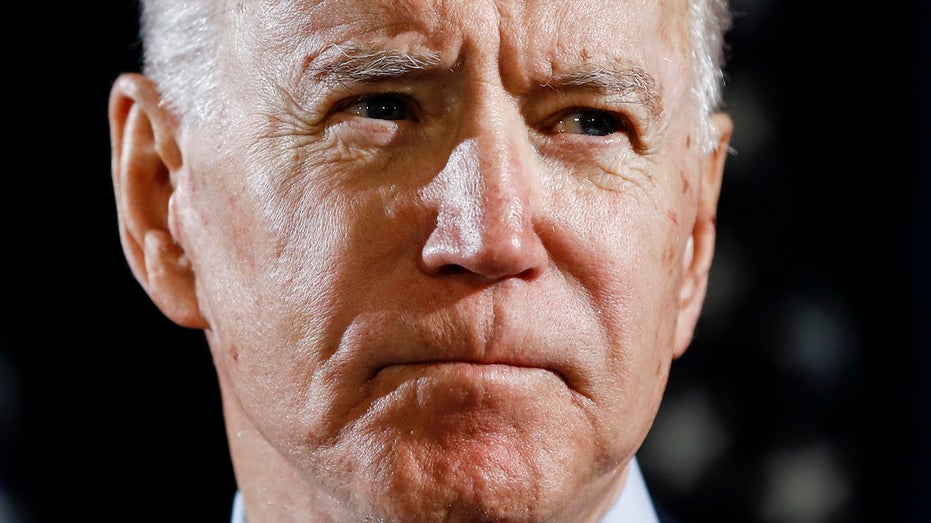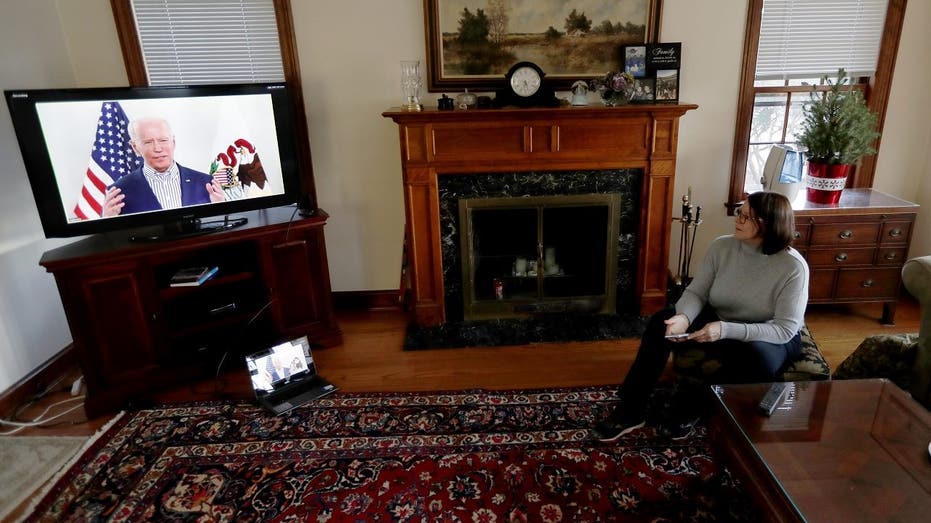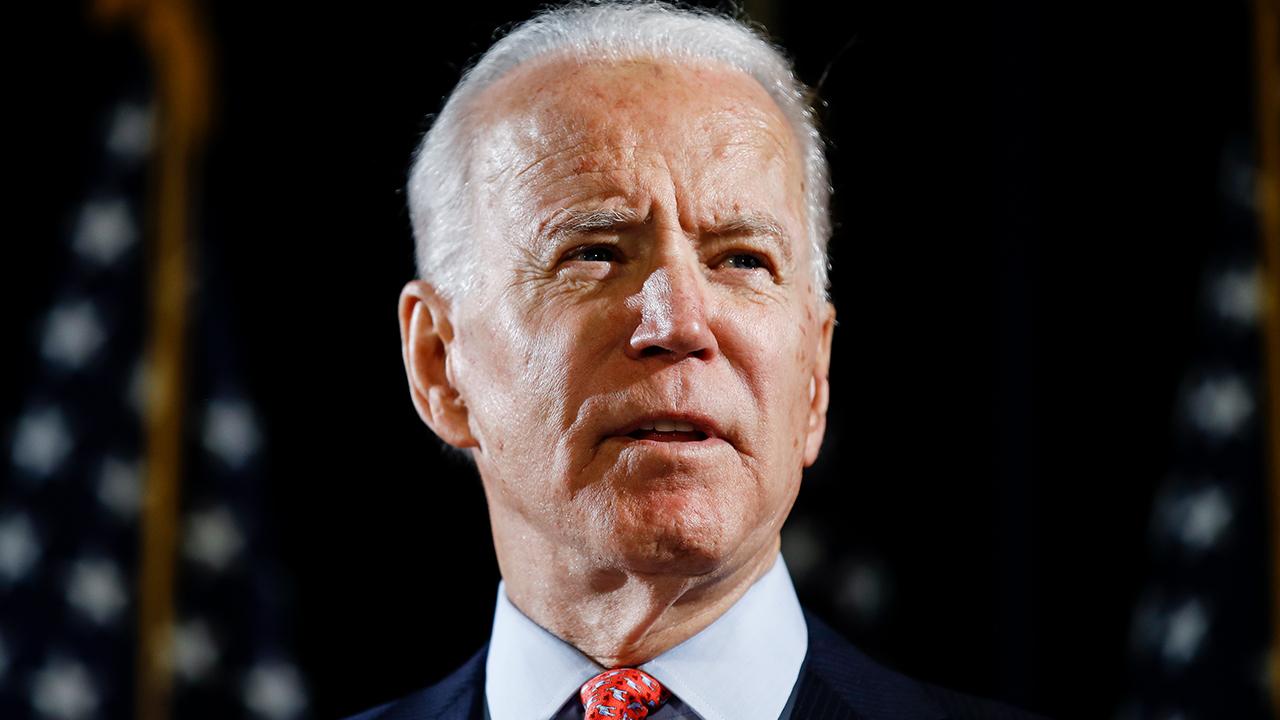Biden fundraisers going virtual amid coronavirus pandemic
Outbreak has pushed the 2020 presidential campaign into uncharted territory
Raising campaign money during a deadly virus outbreak will be a challenging task, but Joe Biden thinks he has at least a partial solution: holding "virtual" fundraisers.
The former vice president, who increasingly looks to be the Democratic nominee to face President Trump in November, will begin hosting fundraisers online in response to the coronavirus pandemic, with his first so-called virtual fundraiser on Thursday, a person close to the campaign tells FOX Business.
It's unclear exactly how the campaigns will hold virtual fundraisers. One possibility: using the popular video conferencing service Zoom in which people can interact via their iPhone or their computer. The candidates themselves can log in and answer questions; people can pay for tickets to attend the Zoom town halls where donations are solicited.
One thing is certain: the pandemic has pushed the 2020 presidential campaign into uncharted territory. Campaigns are looking to minimize the risk not only to donors and supporters, but also to candidates themselves.
CORONAVIRUS OUTBREAK UNLIKELY TO CAUSE US RECESSION: MNUCHIN

Biden speaks about the coronavirus Thursday, in Wilmington, Del. (AP Photo/Matt Rourke)
Biden, is 77 years old, while his remaining Democratic rival, socialist Vermont Sen. Bernie Sanders is 78. Trump is 73, thus putting all of them in the most at-risk demographic for COVID-19's most debilitating effects. Sunday night’s Democratic debate between Biden and Sanders will be held without a live audience, and the candidates will be separated at podiums at a further distance than past debates.
At the same time, as health practices like social distancing begin to alter life in America, candidates are looking for ways to maintain some semblance of a campaign, such as fundraisers and rallies.
HOW BIDEN, SANDERS WOULD COMBAT CORONAVIRUS OUTBREAK
Key primaries in states including Florida, Arizona, Ohio and Illinois are looming, and the cost of ads and staff will remain constant even as traditional social interactions, such as rallies and fundraising events are coming to a standstill.

Lally Doerrer watches Biden during his Illinois virtual town hall, in her living room Friday, in Chicago. (AP Photo/Charles Rex Arbogast)
Biden, for his part, held his first virtual town hall Saturday where the 77-year-old tried to livestream a campaign message to supporters. The stream cut off Biden's opening remarks and lasted less than five minutes; the campaign later apologized to viewers for "technical difficulties."
Whether Biden can use this same technology to rally donors and fund his campaign remains to be seen.
"No one knows what this is going to look like ... how social media is replacing the way we campaign," Democratic strategist Hank Sheinkopf tells FOX Business. "Joe Biden is not used to social media. ... Obviously he's got to get used to it because if he doesn't he could lose the election."
A spokesman for the Biden campaign did not respond to request for comment. Press officials for Sanders and the Trump campaign couldn't be reached for comment.
For Biden, the virus-related turmoil comes at a crucial time as he seeks to pull away from Sanders and clinch the Democratic nomination. Biden received a surge in donations following his recent victories in South Carolina and during the Super Tuesday primaries that gave him front-runner status. Sanders has vowed at least for now to stay in the race.
GET FOX BUSINESS ON THE GO BY CLICKING HERE
According to campaign finance records, Biden raised $11 million immediately after his South Carolina primary win and $7 million following his Super Tuesday victories. The victories helped alleviate some of the campaign's money woes, but it's unclear how a ban on actual campaign events and fundraisers may impact his ability to raise money.
CLICK HERE TO READ MORE ON FOX BUSINESS
Trump declared a national state of emergency Saturday in response to COVID-19 after states including Washington, California and New York had declared emergencies as well.




















